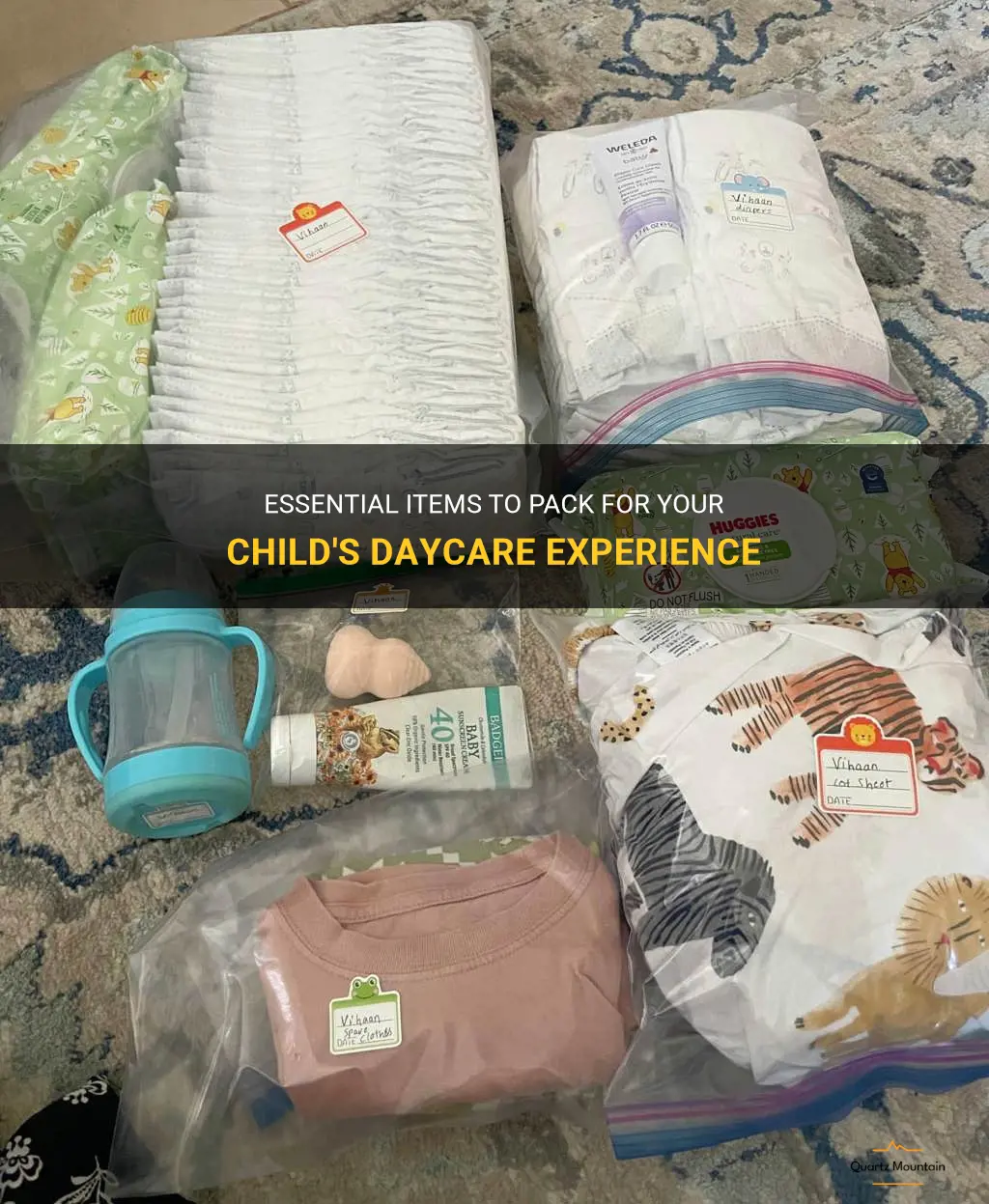
Sending your child to daycare can be both exciting and nerve-wracking for parents. While you may feel anxious about leaving your little one in someone else's care, there are ways to ensure that their daycare experience is a positive and comfortable one. One of the most important aspects of preparing for daycare is packing essential items that your child will need throughout the day. From diapers and extra clothes to comforting items and toys, this article will outline the must-have items to pack for your child's daycare experience.
| Characteristic | Value |
|---|---|
| Clothing | Comfortable and easy to move in |
| Diapers | Enough for the duration of the day |
| Wipes | A package to use as needed |
| Extra clothes | In case of accidents or spills |
| Blanket or cuddly toy | For naptime or comfort |
| Snacks | Healthy and easy to eat |
| Drink bottle | Refillable and labelled |
| Sunscreen | To protect from sun exposure |
| Hat | To protect from sun exposure |
| Medications | If needed, with clear instructions |
| Emergency contact information | Including phone numbers and addresses |
| Allergy information | If applicable, including specific foods to avoid |
| Comfort item | Such as a special toy or pacifier |
| Diaper cream | If needed |
| Lunch | If not provided by the daycare |
| Nap mat or bedding | If required |
| Indoor shoes or slippers | If required |
| Face masks | Depending on the daycare's policy |
| Extra socks | In case of wet or dirty socks |
| Rain gear | If the weather is expected to be wet |
| Change of shoes | In case of wet or muddy shoes |
| Hand sanitizer | To maintain cleanliness |
| Toothbrush and toothpaste | For brushing teeth after meals |
| Hairbrush or comb | For grooming |
| Plastic bags | For soiled or wet clothing |
| Tissues | For runny noses or spills |
What You'll Learn
- What are the essential items to pack for my child's daycare?
- How can I ensure that my child's food stays fresh and safe during daycare hours?
- Are there any specific clothing or bedding requirements for my child at daycare?
- Should I pack any comfort items, such as a stuffed animal or blanket, for my child at daycare?
- Are there any restrictions on what items or materials should not be packed for my child at daycare?

What are the essential items to pack for my child's daycare?
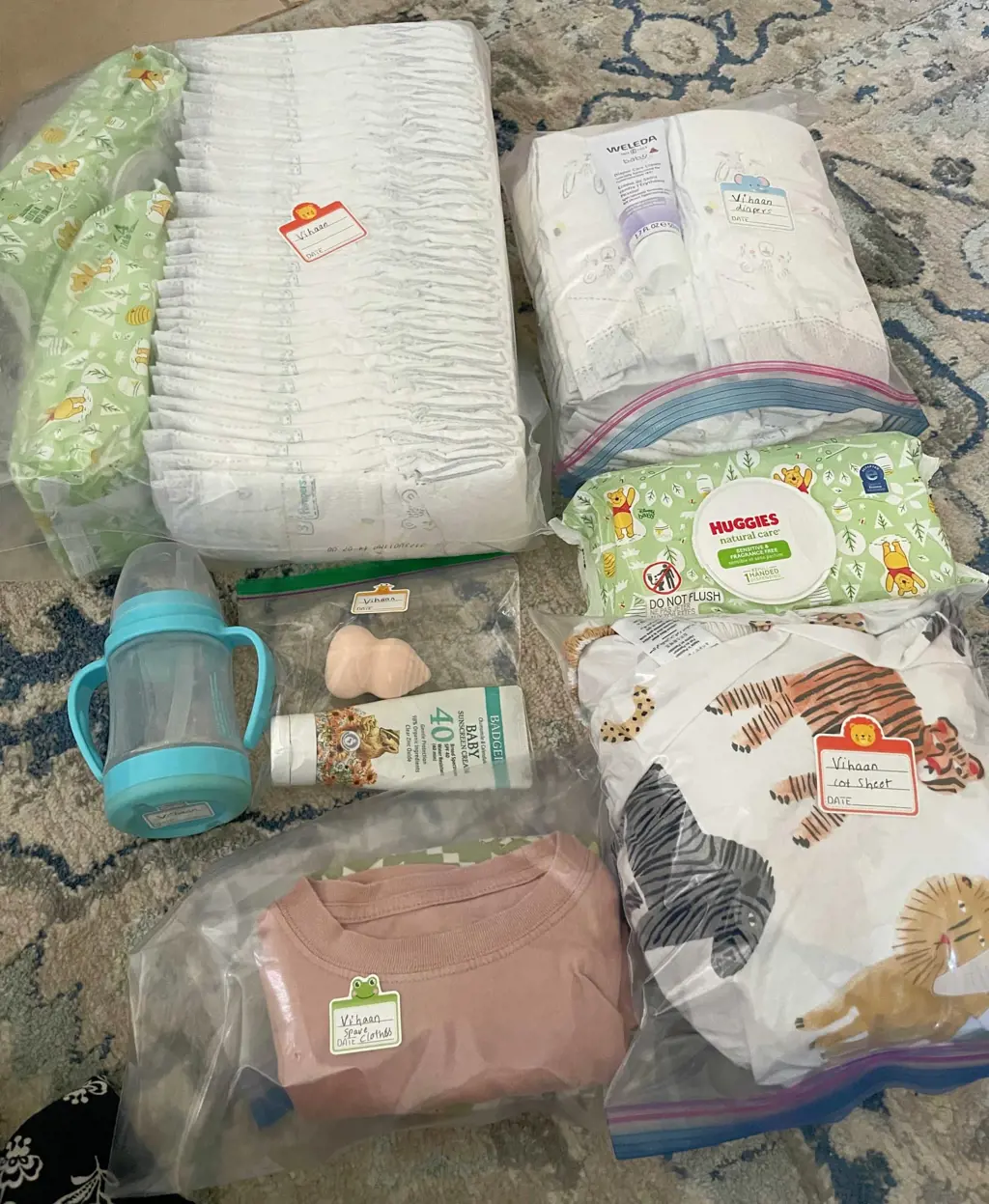
When your child starts daycare, it can be an exciting but also overwhelming time. You want to make sure your child has everything they need to be comfortable and happy during their time away from home. To help you prepare, here are some essential items you should pack for your child's daycare.
- Extra Clothes: Accidents and spills happen, so it's important to pack a few extra sets of clothing for your child. Make sure to include underwear, socks, and any necessary outerwear like jackets or hats, depending on the season. Label each item with your child's name to avoid mix-ups.
- Diapers and Wipes: If your child is still in diapers, pack enough for a whole day, plus a few extras, just in case. Don't forget to include wipes for diaper changes as well. Communicate with the daycare staff about your child's diapering routine, so they can assist accordingly.
- Healthy Snacks: Daycares often provide meals and snacks, but it's a good idea to pack some healthy options that your child enjoys. This ensures they have something familiar to eat and helps cater to any specific dietary preferences or restrictions your child may have.
- Comfort items: Many children have comfort objects like a favorite blanket or stuffed animal. Sending along something that reminds your child of home can help ease any potential separation anxiety and provide comfort during nap times or quiet moments.
- Medications and Instructions: If your child requires any medication, be sure to provide it to the daycare along with clear instructions for administering it. This includes any allergies or medical conditions that the staff should be aware of to ensure your child's safety and well-being.
- Sunscreen and Bug Spray: If your child will be spending time outdoors, especially during warmer months, it's crucial to pack sunscreen and bug spray to protect their delicate skin. Opt for child-friendly and age-appropriate options to avoid any skin irritations or allergic reactions.
- Communication Tools: Providing a notebook or communication log can be helpful for exchanging information with the daycare staff. You can use this to share any important updates, such as changes in routine, sleep patterns, or eating habits. It also allows the staff to provide feedback about your child's day and any concerns or milestones they may have noticed.
Remember to check with your child's daycare for any specific requirements or recommendations they may have for what to pack. Each facility may have its own policies regarding certain items or preferred brands. Additionally, be aware of any seasonal changes that may necessitate adjustments to the items you pack.
By ensuring your child has the essential items they need, you can help make their daycare experience more enjoyable and comfortable. Open communication with the daycare staff is key, so don't hesitate to ask questions or provide additional information to ensure your child's well-being while they're away from home.
Essential Items to Pack for a Perfect Vacation
You may want to see also

How can I ensure that my child's food stays fresh and safe during daycare hours?
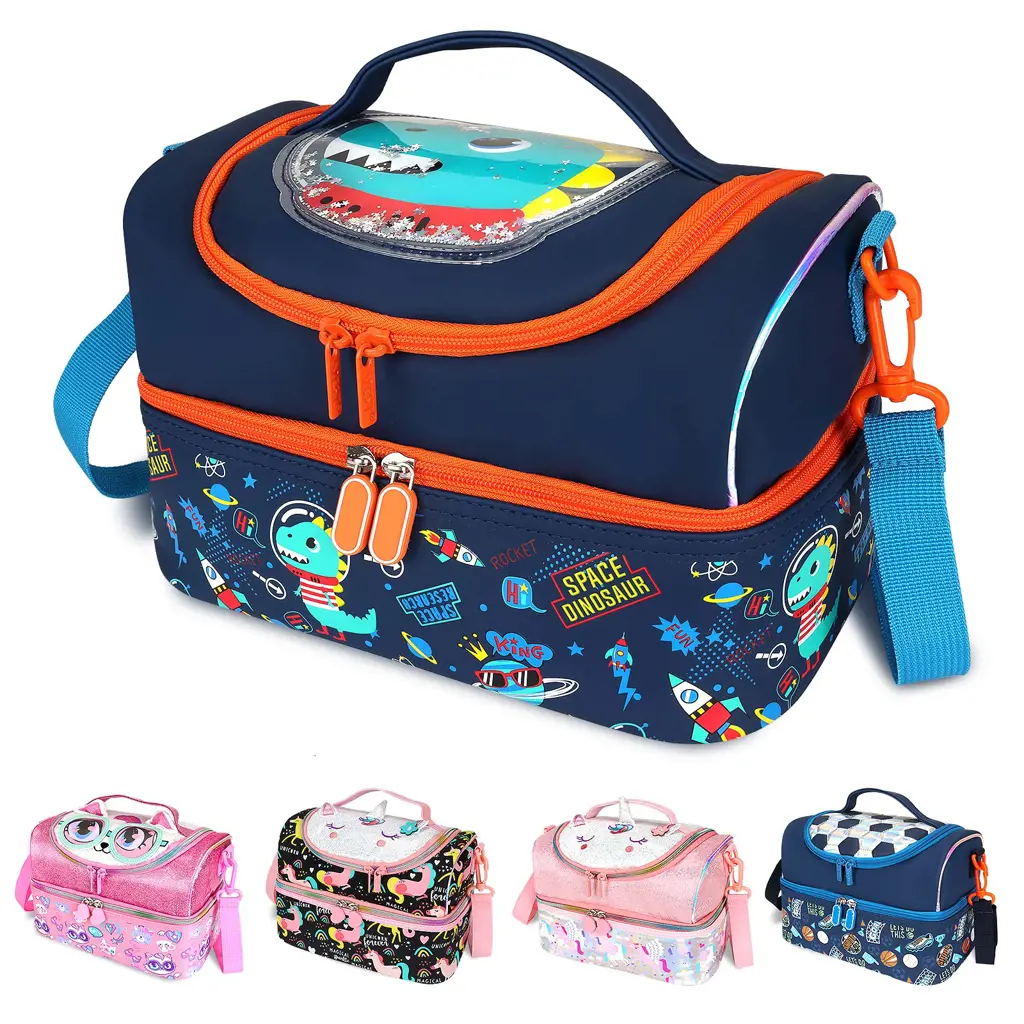
Keeping your child's food fresh and safe during daycare hours is essential to ensure they receive the proper nutrition and avoid foodborne illnesses. Here are some steps you can take to ensure your child's food stays fresh and safe:
- Use airtight containers: Invest in quality airtight containers to pack your child's food. This will help prevent any leaks and keep the food fresh for longer periods. Choose containers that are easy to open and close, especially for younger children.
- Plan for proper storage: If your child's daycare has a refrigerator or freezer, make sure to make use of it. Keep perishable items such as dairy products, cooked meats, and fruits that need to be kept cool in the refrigerator. Freeze items like yogurt or fruit cups overnight, so they can act as ice packs, keeping other food items cool until lunchtime.
- Pack an insulated lunch bag: If a refrigerator is not available at the daycare, consider packing your child's lunch in an insulated lunch bag with an ice pack. This will help keep the food at a safe temperature until it's time to eat. Test the bag's insulation by placing a thermometer inside to monitor the temperature.
- Prepare safe food choices: Opt for foods that are less likely to spoil or cause foodborne illnesses. Avoid items that contain raw or undercooked ingredients, such as sushi or raw eggs. Instead, choose cooked or grilled meats, pasta salads, fresh fruits, and vegetables. These options are less prone to spoilage and will provide a balanced meal for your child.
- Follow proper food handling practices: Wash your hands thoroughly before preparing your child's food and ensure that all utensils and surfaces are clean. This will help prevent the spread of bacteria. Additionally, cut fruits and vegetables that turn brown quickly, such as apples or avocados, just before serving to maintain their freshness.
- Label the food: Clearly label your child's lunch container with their name and the date. This will make it easy for daycare staff to identify and serve the food promptly. It will also prevent mix-ups or confusion with other children's lunches.
- Communicate with daycare staff: Maintain open communication with the daycare staff to ensure they understand your concerns regarding food safety and freshness. Discuss any specific requirements or allergies your child may have to ensure they are met.
Examples:
- For example, if you pack a sandwich for your child, try to keep the bread and filling separated until it's time to eat. This will prevent the bread from becoming soggy and the filling from spoiling.
- Another example would be to pack a variety of small snacks such as carrot sticks, cucumber slices, or cheese cubes in separate containers. This will allow your child to have a variety of options and reduce the risk of cross-contamination between different foods.
In conclusion, ensuring your child's food stays fresh and safe during daycare hours involves proper storage, safe food choices, and good communication with daycare staff. By following these steps, you can give yourself peace of mind knowing that your child is receiving a nutritious and safe meal while at daycare.
Essential Items to Pack for Kids Going on a Cruise
You may want to see also

Are there any specific clothing or bedding requirements for my child at daycare?
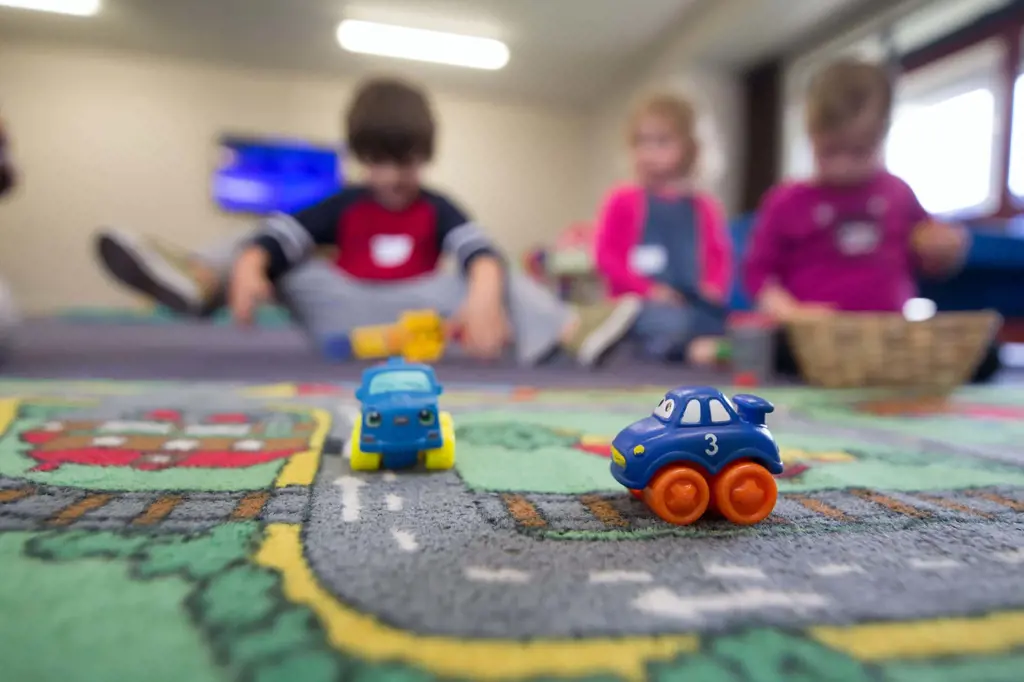
When it comes to sending your child to daycare, it's important to ensure that they have everything they need for a comfortable and safe experience. This includes paying attention to their clothing and bedding requirements. While each daycare facility may have specific guidelines, there are some general recommendations to consider.
Clothing Requirements:
- Comfortable and Easy to Move In: Choose clothing that allows your child to move freely and comfortably. Avoid clothes with too many buttons or zippers, as they can be difficult for young children to manage on their own.
- Weather-Appropriate Clothing: Make sure your child is dressed appropriately for the weather. Layer their clothing in colder months, so they can easily add or remove layers as needed. In warmer months, choose lightweight and breathable fabrics to keep them cool and comfortable.
- Extra Set of Clothes: Accidents and spills happen, so it's a good idea to pack an extra set of clothes in your child's bag. This way, if they get wet or dirty during playtime or meals, they can change into clean clothes.
- Comfortable Shoes: Choose closed-toe shoes with non-slip soles to ensure your child's safety during playtime. Avoid shoes with laces or complicated fastenings, as daycare staff may not have time to tie each child's shoes throughout the day.
Bedding Requirements:
- Age-Appropriate Bedding: Depending on your child's age, they may require a crib, cot, or a regular bed. Discuss with the daycare staff to understand what type of bedding they provide or if you need to bring your own.
- Clean and Hygienic: Ensure that your child's bedding is clean, hygienic, and in good condition. If you are providing your own bedding, wash and sanitize it regularly to prevent the spread of germs and allergies.
- Comfortable and Familiar: Bringing a small blanket or stuffed animal from home can provide your child with a sense of comfort and familiarity during nap time. Just make sure to label these items with your child's name to avoid mix-ups.
- Safety Measures: Ensure that the bedding provided or brought from home meets safety standards. Check for any loose threads, sharp edges, or excessive padding that could pose a risk to your child's safety.
Examples of Specific Requirements:
While the general recommendations mentioned above apply to most daycare facilities, it's essential to consult with your child's specific daycare to understand any additional requirements they may have. For example, some daycares may have a specific dress code or uniform policy, while others may require all bedding to be labeled with the child's name.
It's also a good idea to consider any special needs or allergies your child may have. If your child has sensitive skin, you may need to provide specific laundry detergent or ask the daycare if they can accommodate their needs.
In conclusion, while there may not be one-size-fits-all clothing and bedding requirements for daycare, following these general recommendations will help ensure your child's comfort, safety, and ease while at daycare. Always consult with your daycare facility for any specific guidelines or requirements they may have.
The Essential Packing List for a Caribbean Cruise in the Bahamas
You may want to see also

Should I pack any comfort items, such as a stuffed animal or blanket, for my child at daycare?
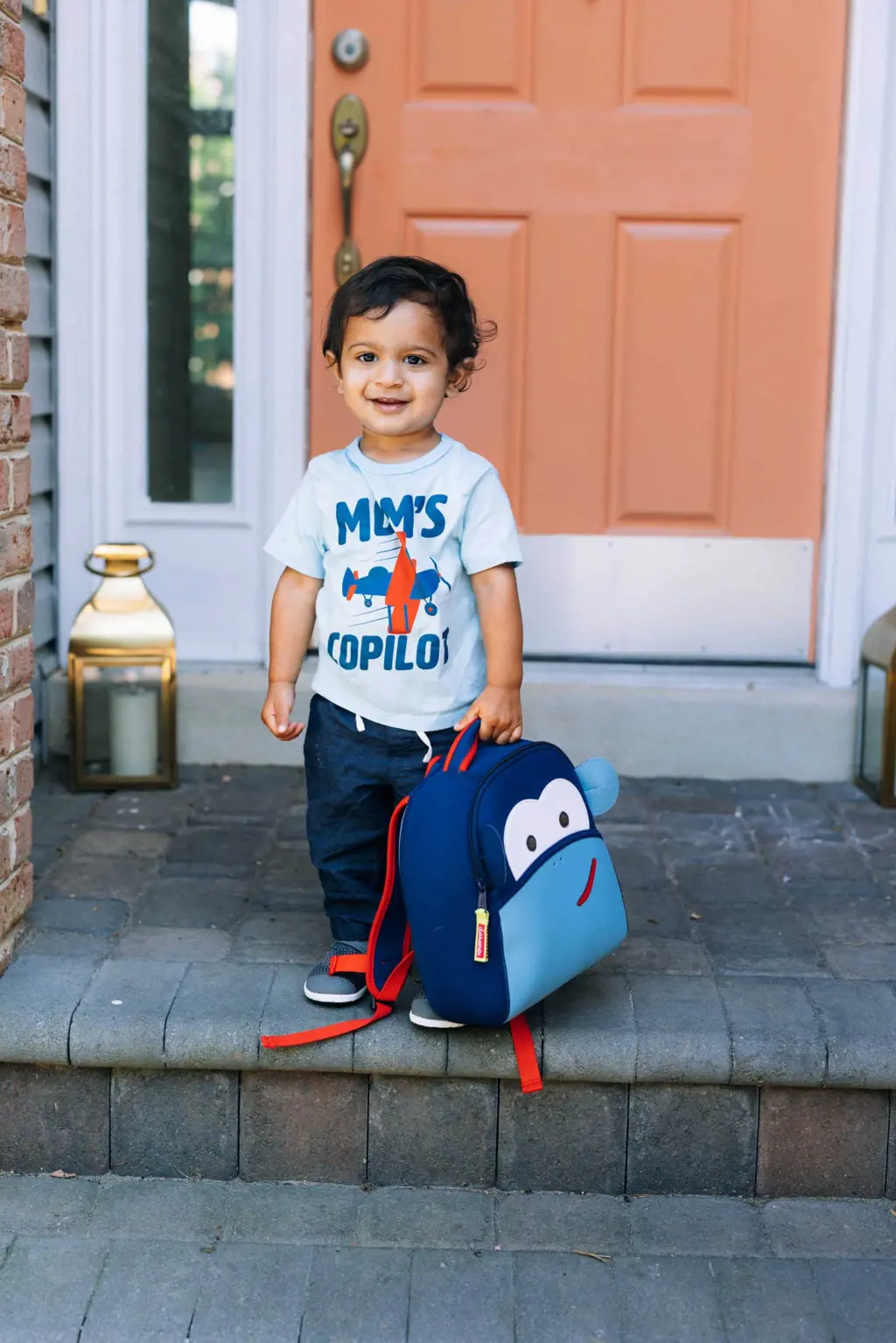
When it comes to sending your child to daycare, it's common for parents to wonder if they should pack any comfort items, such as a stuffed animal or blanket, for their child. These items can provide a sense of security and familiarity in the new environment, but it's important to consider a few factors before making a decision.
Scientific research suggests that comfort items can indeed be beneficial for children in daycare settings. This is because they provide a sense of familiarity and security, which can help ease separation anxiety and promote a smoother transition into the new environment. A study published in the Journal of Child Psychology and Psychiatry found that children who had a comfort item at daycare displayed lower levels of distress and were more engaged in activities compared to those without a comfort item.
Experience also shows that comfort items can play a significant role in a child's emotional well-being at daycare. Many parents and daycare providers have noticed that having a familiar object, such as a stuffed animal or blanket, can help children feel more at ease and provide a source of comfort during times of stress or discomfort. These items can act as a bridge between home and daycare, creating a sense of continuity for the child.
Here's a step-by-step guide to help you make a decision about packing comfort items for your child at daycare:
- Consider your child's attachment to the comfort item: Does your child have a specific comfort item that they rely on at home, such as a favorite stuffed animal or blanket? If so, it may be beneficial to pack it for daycare to provide them with a sense of security and familiarity.
- Talk to your child about their feelings: If your child is old enough to communicate their feelings, have a conversation with them about how they would feel about bringing their comfort item to daycare. Some children may feel embarrassed or shy about having a comfort item, while others may openly express their desire for it.
- Communicate with the daycare provider: Discuss your decision with the daycare provider to ensure they are comfortable with your child having a comfort item. They may have specific policies regarding comfort items, such as restrictions on size or materials. It's important to have open communication and work together to create a supportive environment for your child.
- Introduce the comfort item gradually: If your child is starting daycare for the first time, it can be helpful to introduce the comfort item gradually. For example, you can encourage your child to bring the comfort item for shorter periods initially, gradually increasing the duration as they become more comfortable in the daycare setting.
- Provide alternatives: In case your child's comfort item is not suitable for daycare, consider providing alternative comfort items that meet the daycare's guidelines. This could be a small photo album with pictures of family members or a small piece of clothing with a familiar scent.
In conclusion, packing comfort items such as stuffed animals or blankets for your child at daycare can have positive effects on their emotional well-being. Scientific research and personal experience both indicate that these items provide a sense of security and familiarity, easing separation anxiety and promoting a smoother transition. Consider your child's attachment to the comfort item, communicate with the daycare provider, and introduce the item gradually to ensure a supportive environment for your child.
Essential Gear to Pack for Hiking in Montana's Breathtaking Wilderness
You may want to see also

Are there any restrictions on what items or materials should not be packed for my child at daycare?
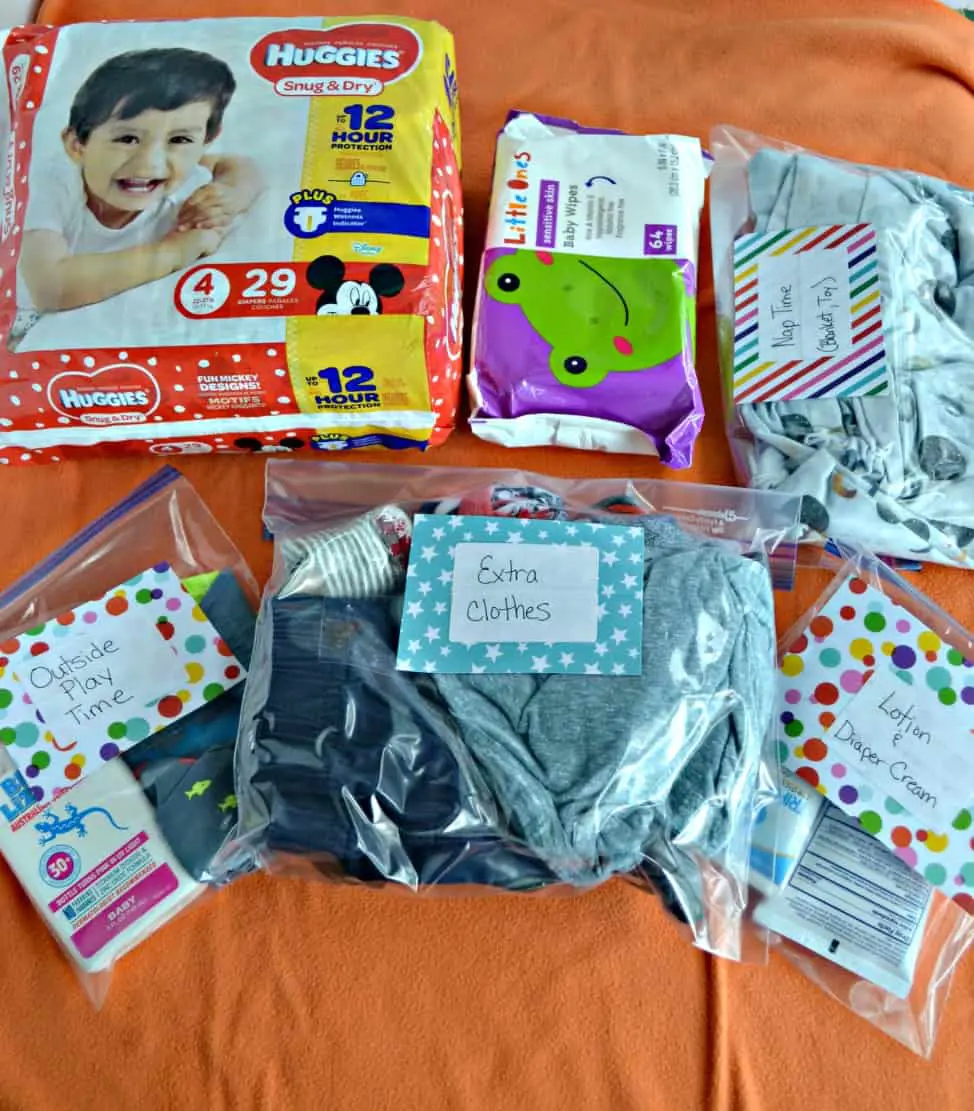
When it comes to packing your child's bag for daycare, it's important to consider the items and materials that are suitable for their well-being and the policies of the daycare center. While every daycare may have their own specific guidelines, there are generally some common restrictions on what should not be packed for your child.
One of the main concerns is safety. Daycare centers prioritize the well-being of all children, so it's important to avoid packing any items that could pose a risk. This includes sharp objects, such as knives or scissors, which could potentially harm your child or others if handled unsupervised. Similarly, any toxic materials or substances, such as cleaning products or medications, should not be packed in your child's bag.
In addition to safety concerns, there may also be restrictions on certain types of food. Many daycare centers have policies regarding allergens, as some children may have severe allergies to specific foods. It's important to check with the daycare center about any dietary restrictions or guidelines they may have. Common allergens to be aware of include peanuts, tree nuts, dairy, eggs, and gluten. Avoid packing any snacks or meals that contain these allergens unless they have been specifically approved by the daycare.
Another consideration is age-appropriate toys and materials. Depending on the age group your child is in, certain items may not be suitable or allowed in their bag. For example, small toys or objects that could pose a choking hazard should be avoided for younger children. If you're unsure about what items are appropriate, it's always best to consult with the daycare staff or refer to any guidelines they provide.
To ensure your child has everything they need at daycare, it's helpful to pack items that promote their comfort and enjoyment. This could include a change of clothes, diapers or training pants, bottles or sippy cups, and any comfort items like a blanket or stuffed animal. It's also a good idea to pack any necessary hygiene items, such as wipes or diapers, so that your child can stay clean and comfortable throughout the day.
In conclusion, when packing your child's bag for daycare, it's important to prioritize their safety and well-being. Avoid packing any items that could pose a risk, such as sharp objects or toxic materials. Follow any dietary restrictions or guidelines set by the daycare center regarding food. Consider age-appropriate toys and materials, and pack items that promote your child's comfort and enjoyment. By following these guidelines, you can ensure that your child's daycare experience is safe and enjoyable.
The Essential Packing Guide for an All-Inclusive Trip to Punta Cana
You may want to see also
Frequently asked questions
When packing your child's lunch for daycare, it's important to include a balanced meal that includes a variety of food groups. Include some protein, such as turkey or chicken slices or nut butter, along with whole grains like whole wheat bread or crackers. Don't forget to add some fruits and vegetables for added nutrition. Water or milk should be included as a drink option.
It's a good idea to pack at least two spare outfits for your child at daycare. Children can be messy and accidents can happen, so it's always good to have extra clothes on hand. Make sure to include a clean shirt, pants or shorts, socks, and underwear. Choose clothes that are comfortable and easy for your child to put on and take off by themselves.
Along with spare clothes and lunch, there are a few essential items that you should consider packing in your child's daycare bag. First, make sure to pack any necessary medication your child may need, along with any specific instructions for the caregiver. Secondly, include a small blanket or lovey that your child finds comforting. Don't forget to pack diapers or training pants, if needed, along with wipes and a change of underwear. Finally, include a labeled water bottle and a small snack for your child to have during snack time or as a quick pick-me-up.







